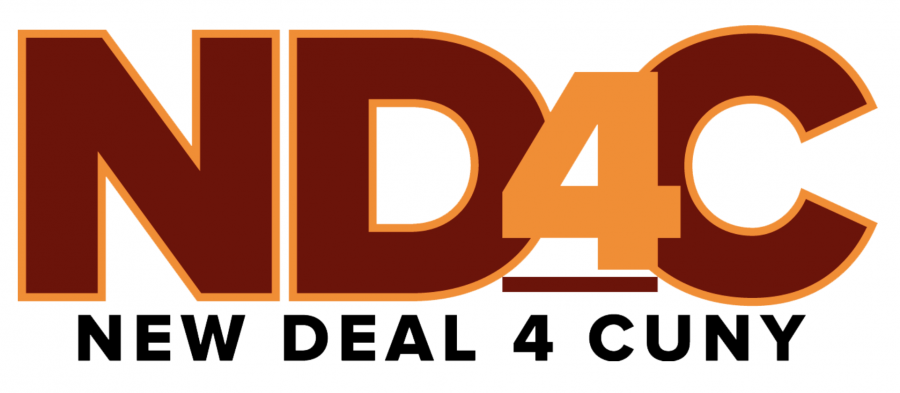CUNY Rising Alliance unveils details for its proposed New Deal for CUNY policy
February 12, 2021
The CUNY Rising Alliance held an online press conference on Feb. 4 to reveal details about the New Deal for CUNY bill.
This launch comes only a day after the “Joint Virtual Legislative Budget Hearing on Higher Education” regarding New York State Gov. Andrew Cuomo’s Executive Budget for fiscal year 2021-2022.
New York State Sen. Andrew Gounardes and Assemblymember Karines Reyes are the prime sponsors for the bill, which was introduced in the New York State Senate on Feb 5.
The plans outline a five-year phase in period to restructure funding to the CUNY system. The main focus of the bill is to make CUNY tuition-free for in-state undergraduate students, replacing the income with public funds.
Because the number of academic advisors and mental health counselors do not meet the recommended national standards, an increase in advisors and counselors was also demanded.
Several components of the bill address the need to revitalize the faculty at CUNY.
These include increasing the ratio of full-time faculty to full-time students by hiring an additional 5,000 full-time faculty members, ensuring that this addition is done with careful consideration of the need for a diverse faculty body in CUNY.
The policy also sets a new national labor standard by mandating that adjunct faculty be given equal pay to that of full-time faculty.
Lastly, the bill also demanded that investments be made toward CUNY infrastructure to address issues of health and safety, accessibility, energy and maintenance.
Key issues that are still prevalent within the CUNY system were highlighted. Attendees discussed how the underfunded CUNY system predominantly affects students of color and leaves them with little support to succeed.
Gounardes shared his dismay with the current system, calling CUNY a “system that is starved by austerity politics, that is deprived of critical infrastructure upgrades and improvements and investments, that does not have first class hiring practices.”
“We need to learn from our lessons in the past and redouble our efforts to invest in human capacity again,” he added.
The governor’s budget is set to cut CUNY of $42 million and raises tuition by $200 every year.
“We have a system that is relying on a month-to-month budgeting process which is asinine and completely crazy that this is how we are functioning in the 21st century”, Gounardes added. In her statement to the press, Reyes called this “a human rights issue.”
“We know that education is a great equalizer, but we also know that people with education have better health outcomes overall,” she explained.
Despite the financial challenges of the bill, Reyes expressed her optimism about its success.
“I think that this can actually happen this year, if we keep pushing,” she said.
When asked about funding for the legislation, which would be approximately $6.7 billion over five years, the assemblymember reiterated the importance of revenue raisers.
“Raising revenue on the uber rich in New York City and New York State, so we have the resources to fully fund CUNY,” she said.
Gounardes added that the legislation be looked at as an investment, not an expense.
“Every dollar we invest in our education system pays enormous dividends on the outside,” he said. “The more that we invest in our city university system, the more economic value we are creating. It’s a ‘rising tide lifts all boats’ type argument. In a time of deep economic challenges, we should be looking to invest more in the programs and initiatives and the services that we know will produce greater economic output for the entire city, the entire state and for each of the individual members who are a part of this community.”
Professional Staff Congress President Barbara Bowen, noted that the amount quoted includes the capital funding and the operating costs, which are separate in the budget. The PSC is the union for CUNY faculty and staff.
The operating cost for the bill is approximately $1.5 billion – an amount Bowen is confident in securing.
According to Bowen, legislators are willing to invest up to $4 billion dollars in the CUNY system.
“One and a half should be easily reached,” she claimed.
Reyes told The Ticker that the biggest challenge would be getting the funds for CUNY.
“Of course, the biggest challenge here is going to be finding the money,” Reyes commented.
She also mentioned the importance of earmarking the money that is raised specifically for CUNY, to ensure that the program is implemented adequately.
Gounardes said he agreed with the assemblymember’s response.
“The biggest challenge we’re going to have is making sure we have enough public support to help pay for these programs,” he said.
He also emphasized that every single point of focus in the bill was essential to CUNY’s success.
“We cannot let any of them be sacrificed,” he said.
The bill has seen an increase in support from locals and legislators alike. However, some members remain skeptical about the commitment of these legislators.
In his closing statements, Gounardes reiterated the need for support to make this bill into a reality.
“We have a lot of work ahead of us, this is just the beginning,” he said.








